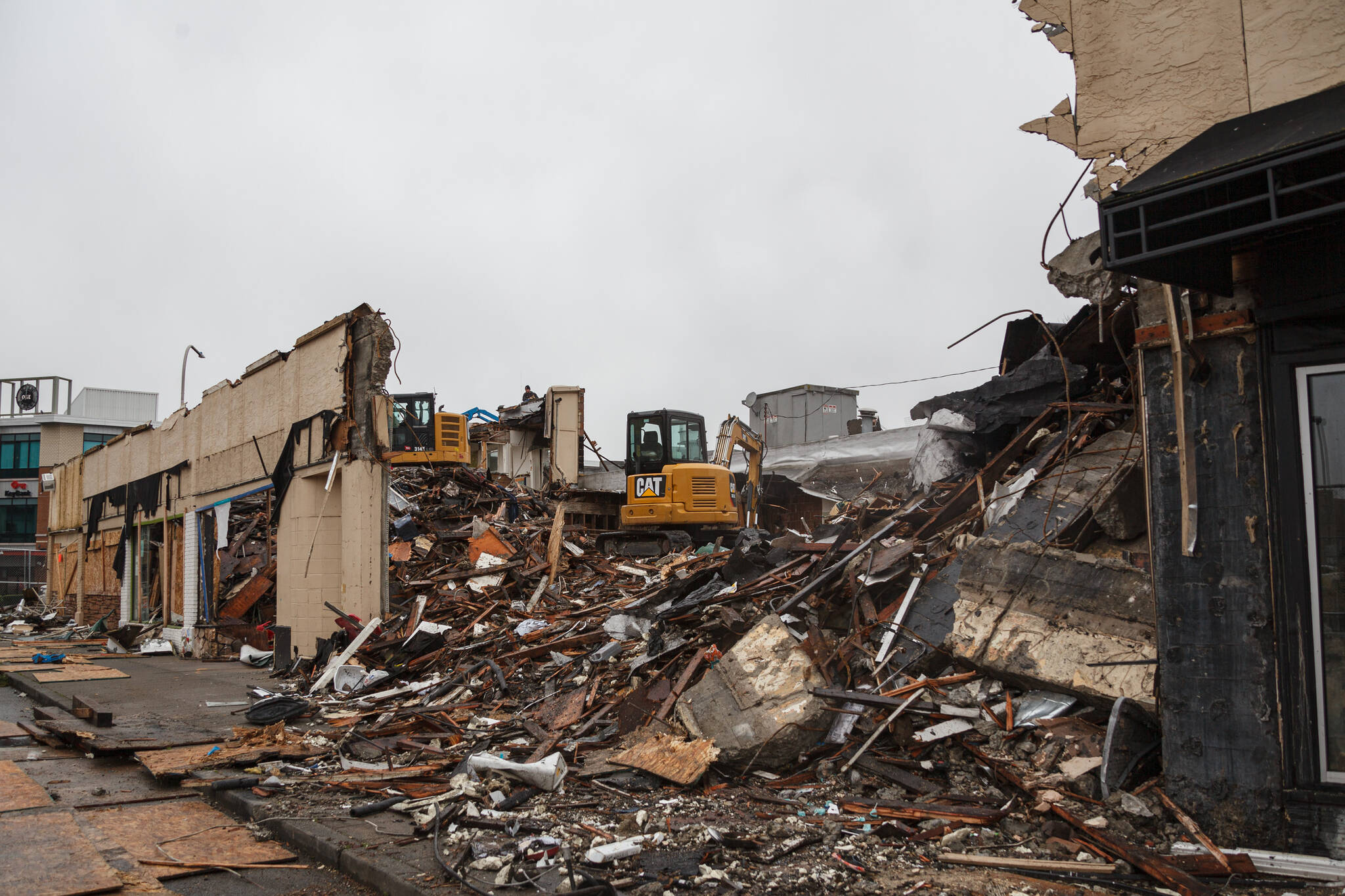The demolition of the Max House Apartments and Nelson’s Jewelry building has begun after a fire destroyed much of the structure in July earlier this year.
The fire destroyed 15 apartment units and several businesses, according to the Valley Regional Fire Authority. The fire caused around $1.7 million in damage to the building and an additional $300,000 damage to the contents of the apartments and businesses.
The building was valued at $1.7 million in 2021, according to the King County Assessor’s Office.
The property owner, Seattle-based Max House LLC, has decided to cut their losses and sell the building rather than trying to rebuild, Director of Community Development Jeff Tate said.
Built in 1927, the building has long been a landmark of Auburn’s Main Street. Besides the demolition of the building, the future of the lot is unknown, Tate said.
Although the excavators only came out on Dec. 13, the demolition actually began a few weeks ago, Tate said. The demolition permit was issued to the property owner on Nov. 19, 2021, and since then, the demolition team has removed all of the asbestos and disconnected all of the utilities from the building, Tate said.
“Oftentimes when people think about removing a building, it is the last phase of removal that people are most familiar with because it’s the most visible — that’s taking the building down,” Tate said. “But there’s a bunch of things that need to happen ahead of time like disconnecting the building from all of the utilities that are connected to it.”
After the building was disconnected from utilities, a company had to carefully remove all of the asbestos from the building, Tate said.
“Before you can remove the building, you have to really surgically pull out all of the asbestos,” Tate said. “That is really intense manual labor and it takes a long time to do that.”
Once the building is reduced to rubble, workers have to load it into dump trucks and haul it off to a dump, Tate said.
Another obstacle in demolishing the building is working around the neighboring buildings, Tate said. The demolition team has to work with a structural engineer and must be careful not to damage the integrity of the Auburn Avenue Theater or Hills of Comics, which both sit against the building, Tate said.
Michelle Hill, who co-owns Hills of Comics with her husband, said the demolition may have led to a decrease in foot traffic over the last few weeks or so, but nothing major. The bigger setback to their business came in July when the fire caused water damage to their building. Now they’re looking forward to the future, Hill said.
Once the building is down and the rubble is cleared, the lot may sit empty for a while, Tate said.
“The property owner has indicated that their desire is to sell it and it has not been sold yet. I don’t know of any buyers. The city often doesn’t know what the negotiations or conversations are for buying and selling properties,” Tate said. “The property in all likelihood will sit there as a vacant lot for a few years.”
Once someone does buy the property, they’ll have to design a building and submit construction applications, which all takes time, Tate said.
Although no one knows what will become of the lot, the future building will have to meet the zoning requirements of the area, Tate said. The “Downtown Urban Center Zone” requires buildings to be at least two stories tall and have ground-floor commercial spaces, Tate said.
“You should anticipate that it’s going to be something that has some residential and some commercial in it. That’s what the zoning code requires,” Tate said.
The downtown lots can be challenging for prospective developers due to their size, Tate said.
“The configuration of the lot itself can make it difficult to develop because the lots aren’t large. When you look at downtown Auburn and you see the new buildings, those are full city blocks. These lots are constrained just because of their size,” Tate said.



